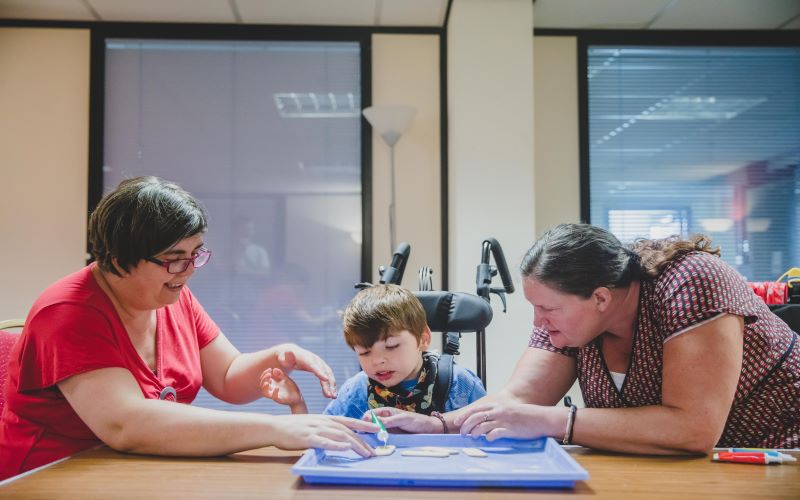We are always stronger, better, more focused and more successful when we’re working together than when we are working apart, and that includes when families, schools, medical and social care professionals, everyone involved in the life of a child or young person, has a shared passion and vision for them.
This is especially true for children and young people with special needs or disabilities, where working together can have significant lasting benefits for everyone.
Here’s just a few examples of why this can be the case…
Working together makes us more successful in supporting our child
We’re all human, and that means all the good, bad and ugly that goes with it.
Whether we admit it or not, we respond better, act better, do more, for people that we get on with and can work with than people that we don’t.
It’s the same for all of us, whether we are family members, professionals, whatever role we have in the life of a child.
As family members, we can be used to fighting for everything, going into meetings with our boxing gloves on, and where we need to, we still must.
But we should also be aware that people, even on a subconscious level, label us by our actions and if we are always the ‘difficult parent’ or ‘confrontational’ then whether we like to admit it or not it can do harm to the chances of our child getting the support they need.
We might feel it’s the only way to get what our child needs, but working together, finding a way to work in harmony, can help create even more successful outcomes.
We need to change ‘them and us’ to ‘us together’.
Better ideas come from collaboration
When we work together, new and better ideas can emerge that can help our child.
Collaboration encourages creativity and in putting new exciting ideas into practice we can see positive ways forward opening up for our child.
Neither families nor professionals have all the answers, even if we think we do, but together we are greater than the sum of our parts.
We bring different skills, knowledge and understanding together that can spark some groundbreaking thinking if we learn to collaborate well. 1 + 1 really can = 3
A unified approach improves focus and means everyone learns together
When we are working in harmony, family and professionals working with common goals, respecting each other and recognising that together we have more to offer than we do individually, we can focus on the main reason we’re working together which is for the benefit of a child or young person.
Keeping our focus there will improve the chances of other frequent causes of disagreement, e.g. finance, being lessened; it changes the narrative.
As we work together in harmony, we learn more about each other and how we can unlock the potential of a child or young person together.
Supporting children together can mean we’re stronger at supporting everyone
The lessons learned from working well together can be used beyond the immediate benefits for the child or young person we’re focused on.
New strategies can be passed on by a family to other families on a similar journey; professionals work with many families and can share the fruits of successful collaboration with others.
The ideas we’ve helped to shape can positively influence the outcomes for many children.
Working together makes sense for everyone, but as we’ve seen it can have really significant benefits for children and young people with special needs and disabilities and their families.
It can be hard, it means that many of us need to put aside negative feelings we may have acquired through bad previous experiences, to try to build relationships again, to reach out in new ways even though we’re exhausted, but if it can improve the outcomes for our child, it kind of asks the question, why wouldn’t we try?
Working together wins!
Peace, Mark
